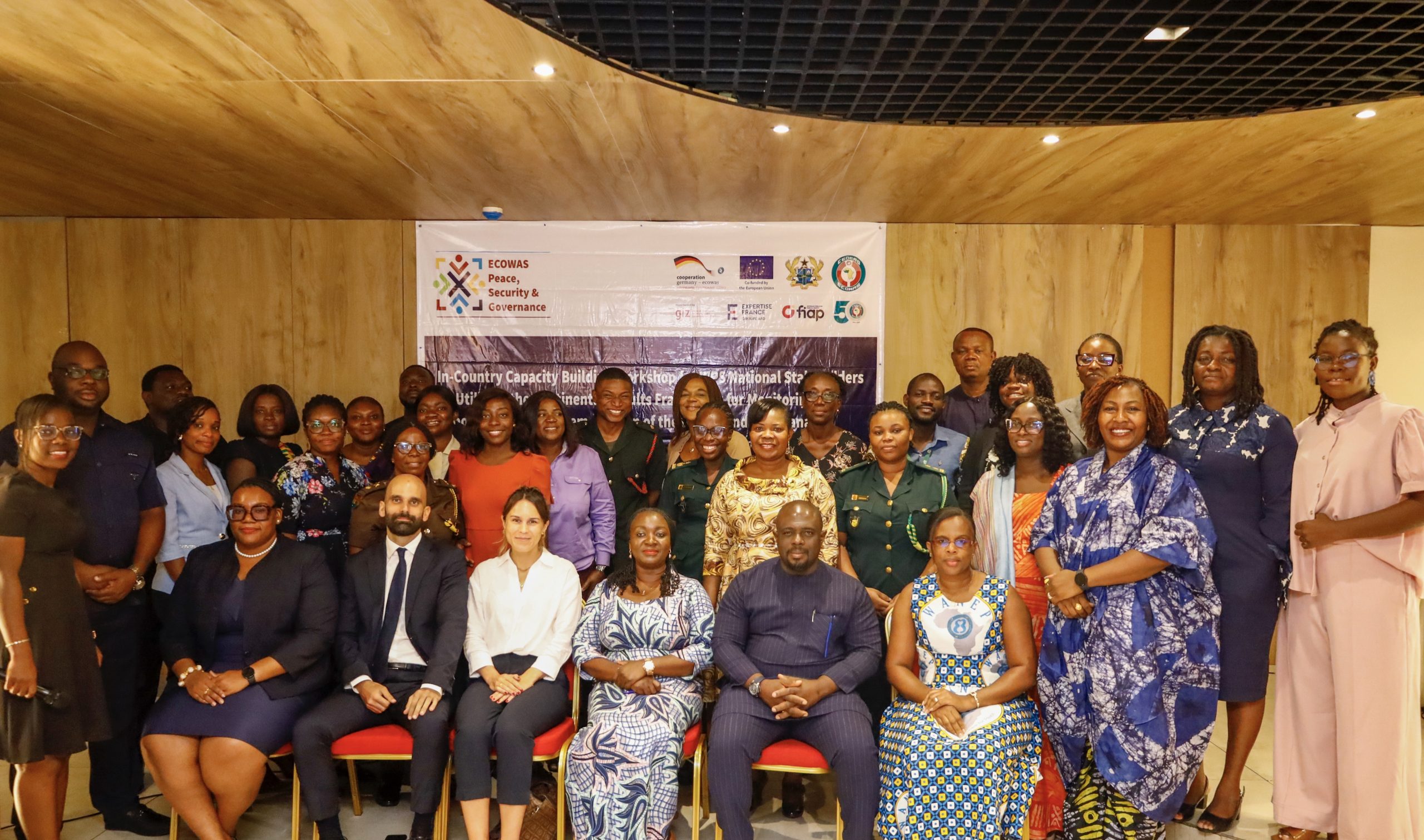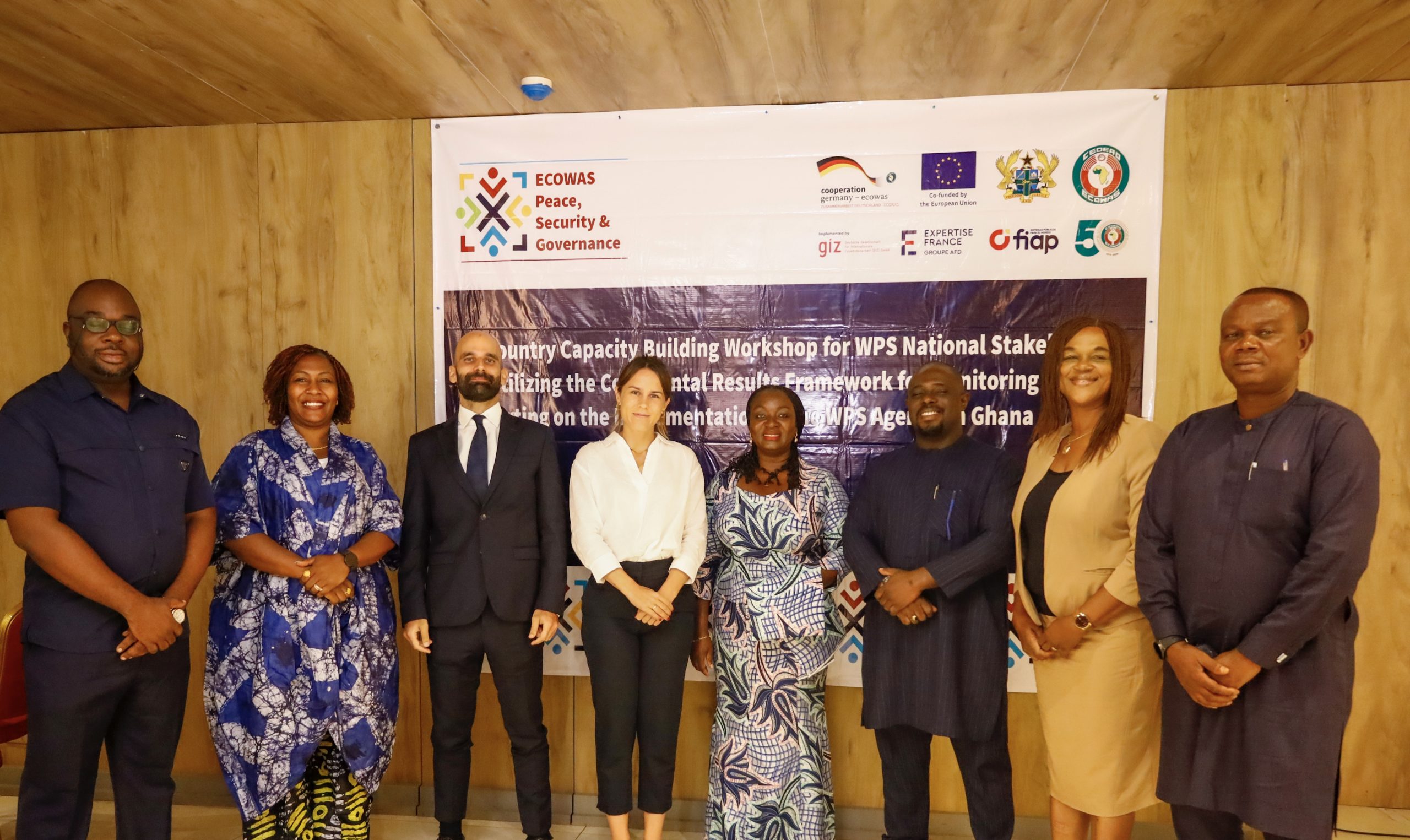ECOWAS and partners strengthen Ghana’s capacity to monitor and report on women, peace and security commitments through the continental results framework
21 Jun, 2025The ECOWAS Commission, through its Directorate of Humanitarian and Social Affairs (DHSA), in collaboration with the Ministry of Gender, Children and Social Protection of the Republic of Ghana, successfully hosted a three-day national capacity-building workshop on the Continental Results Framework (CRF) for Women, Peace and Security (WPS) from the 10th to 12th of June 2025, in Accra. The workshop was part of ECOWAS’s continued efforts to support Member States in institutionalizing robust, data-driven mechanisms for tracking and reporting on the implementation of United Nations Security Council Resolution 1325 and related WPS commitments. It forms part of the broader ECOWAS Peace, Security and Governance (EPSG) Project, co-financed by the European Union and the German Government (BMZ), and implemented by GIZ.
Delivering remarks on behalf of Dr Sintiki Tarfa Ugbe, the Director, Humanitarian and Social Affairs of the ECOWAS Commission, Mr. Olatunde Olayemi welcomed participants and reaffirmed the Commission’s commitment to inclusive peace and security. “Ensuring the full-fledged contributions of women is sine qua non,” he noted. He emphasized that ECOWAS’s adaptation of the African Union CRF into a simplified regional framework is key to achieving more effective monitoring, implementation, and reporting on WPS across West Africa.
Mrs. Josiane Sombo, representing the West Africa Network for Peacebuilding (WANEP), highlighted the role of civil society as co-creators of peace and custodians of accountability. She noted that the CRF is not merely a technical tool; but a moral and political commitment and as civil society, they remain committed to ensuring that evidence-based, inclusive, and collaborative reporting is embedded in WPS monitoring systems.
Speaking on behalf of the German Federal Ministry for Economic Cooperation and Development (BMZ), Ms. Paulina Hawkins reiterated Germany’s strong support for feminist development cooperation. She highlighted that the workshop represents a vital step in localizing regional frameworks and enhancing national ownership of the WPS agenda. “For the CRF is not just a reporting mechanism, but a strategic instrument for institutional transformation,” she added.
The European Union Delegation to Ghana, represented by Davide Messina, emphasized that the EPSG Project reflects the EU’s long-standing partnership with ECOWAS to promote inclusive governance and gender-responsive peacebuilding. He highlighted that the training is more than capacity-building but should be seen as an investment in a stable, peaceful, and prosperous West Africa.
Delivering the opening remarks on behalf of the Ministry of Gender, Children and Social Protection, Ms. Faustina Acheampong Akua Frempomaa underscored Ghana’s leadership in WPS implementation. With the GHANAP II and the Gender Equity Act of 2024, Ghana is setting new standards for institutional accountability. “This workshop provides a timely opportunity to enhance our national reporting systems and align with regional WPS frameworks,” the representative affirmed.
Over 40 participants, including government officials, civil society representatives, security sector personnel, and technical working group members, were trained on the application of the simplified CRF tool and questionnaire. Through participatory sessions and practical exercises, stakeholders strengthened their capacity to monitor WPS indicators, track progress, and contribute meaningfully to Ghana’s national and regional WPS reports. The workshop concluded with a renewed commitment to inter-agency collaboration and institutionalizing the CRF within national monitoring and evaluation systems. Ghana joins seven other Member States – Côte d’Ivoire, Nigeria, Benin, Liberia, The Gambia, Senegal and Togo that have hosted similar national CRF trainings as part of ECOWAS’s regional strategy to enhance WPS accountability mechanisms.


















